
According to Paul Summerford, a board member of the South African Dexter Cattle Breeders' Society (SA Dexters), 16 feral Dexter cattle that had lived for decades without any human contact in the Addo Elephant National Park have adapted well after relocation earlier this year.
The Addo park boasts a dense elephant population, and the cattle herd had been thriving among predators such as lions and leopards until the time of being moved to Bronkhorstspruit in Gauteng. The animals survived about 27 years in the park. The first members of the herd escaped from a nearby farm belonging to Dr Chris Landman. Since then, the cattle have lived in the park without any human interaction until their removal earlier this year. Landman donated the animals to the society, and earlier this year they were darted and brought to the farm of Kobus van der Linde, the society's chairperson.
"What was very interesting was that the animals, despite the lack of any human contact, remained in excellent physical condition. After the herd was removed the animals had to go through a period of adaptation to acclimatise them to animal feed other than the vegetation available in the park.
"It must be kept in mind that the park includes five of South Africa's nine biomes, including the Albany thicket, fynbos, forests and Nama karoo and coastal dunes and grassy plains.
"The spekboom (Portulacaria afra) predominates in the area," Summerford explains.
He says that one of the reasons behind the removal of the cattle was that black-maned lions from the Kalahari were introduced to the Addo national park about 15 years ago. These lions, as opposed to lions from, for example, the Kruger National Park, were introduced because they were disease-free and would not affect the buffalo population, which may otherwise have contracted tuberculosis (TB).
This story is from the Farmer's Weekly 8 September 2023 edition of Farmer's Weekly.
Start your 7-day Magzter GOLD free trial to access thousands of curated premium stories, and 9,000+ magazines and newspapers.
Already a subscriber ? Sign In
This story is from the Farmer's Weekly 8 September 2023 edition of Farmer's Weekly.
Start your 7-day Magzter GOLD free trial to access thousands of curated premium stories, and 9,000+ magazines and newspapers.
Already a subscriber? Sign In
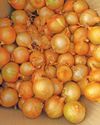
Growing onion sets
Bill Kerr discusses what onion sets are, and how and when to produce them to obtain the maximum financial benefit.

Phalaenopsis orchids: tips to help them survive and thrive
Orchid expert Jacques Botha spoke to Linda Piegl about how to nurture the Phalaenopsis orchid, which requires precise watering and needs to be kept in a temperature-controlled environment.
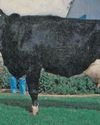
Milking, the hi-tech way
This leading dairy farmer installed the largest rotary milking unit in the Southern Hemisphere.
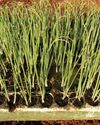
Onion sowing choices
Your particular growing conditions will dictate whether you should use seedbeds, direct seeding, or plugs for sowing onions
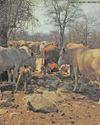
Golden cattle for the bushveld
This article showed that a carefully selected new crossbreed offered sound advantages for extensive ranching in harsh areas.
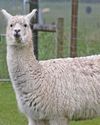
The ins and outs of alpaca farming
The South African alpaca industry is on the rise, says Alison Notley, president of the South African Alpaca Breeders’ Society and owner of Helderstroom Alpacas near Villiersdorp. She spoke to Sinenhlanhla Mncwango about the origin of this gentle camelid and how its fleece is being processed into quality products.

Cheese and Rosemary Scones
Easy-to-make savoury treats that are great for lunch boxes.

Cape Town on a budget: a smart stay at the Holiday Inn Express
What's the best way to enjoy Cape Town's top food and nightlife without having to splurge on a five-star hotel? Brian Berkman has some good suggestions.
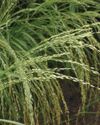
Managing grazing and hay production in Eragrostis fields
Summer is almost gone, so it’s time to start thinking about your pastures and hay for winter
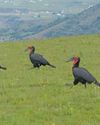
Protecting the king of the hornbills
It is estimated that the southern ground hornbill’s original range in South Africa has decreased by two-thirds over the past century. Mike Burgess looks at the threats facing this iconic hornbill species and what is being done to halt its decline, including custodianship programmes that motivate landowners to protect it.
